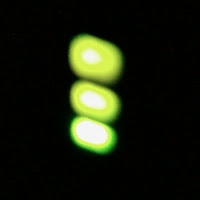From a post on Google+, which posited, that the Prime Directive from Star Trek was/is a safeguard against European and American colonialism.
The Prime Directive is a safeguard against any and all colonialism — not only European and American, but also those events of colonialism that are taking place now. Trouble is, that large EU members' leaders do not seem to be taking any notice.
In terms of rhetoric, past European and American colonialism is discussed often to the exclusion of colonialism of other nations and sociums, such Japanese and Soviet colonialism.
The bigger overall issue is any colonialism, especially that which is performed by peoples who possess nuclear weapons. Some of that colonialism is overt, some more insidious. See VOY:Displaced, a very useful episode. It started slowly...
Europeans and Americans themselves reflect on their own past colonialism (note that not all European nations were colonialist), as they are now mostly enlightened enough to do such reflecting. And also because it's history, and this history is now further in the past. (Or is it?) The distance of this history, of course, permits other nations to talk about European and American colonialism.
Yet some large and non-enlightened nations are very keen to usurp this reflective narrative to their own selfish and nationalistic purposes. And this is dangerous.
There are nations that actually do colonise, while at the same time they would feel insulted, if told that they do this, and if told that their colonialist behaviour is such. As it is with colonialism, people of such conviction do not respect the native language(s) and native customs of the country.
reede, 16. detsember 2016
Strong Female Characters in Science Fiction
This post is a reply to a comment thread in Google+.
re Janeway
Janeway was written to be a rather poor 'strong female' character, and it often shows (episode "The Thaw" being the sole exception).
As for strong female characters in 'Trek, we see Kira, Sela, Troi, Crusher, and T'Pol.
• In TNG's "Face of the Enemy", Troi is a major powerpuff lady as the Romulan Major Rakal (undercover, though).
• In TNG:Descent (Part II, I recall), Dr. Crusher shines as a very capable combat commander.
In 'Trek, several Romulan characters depicted as important people are female.
In other franchises, Farscape gets the most points, as it's replete with strong female characters, such as Aeryn Sun, Zhaan, Chiana, Noranti ("Grandma"), Commandant Grayza, War Minister Akhna; not to mention a large trove of episodes with very strong women as guest characters.
Of all things, Farscape managed to show very capable women of all ages and all walks of life.
Whereas TNG had mostly sexy/entertainer types and tough commanders/lieutenants.
The reimagined Battlestar Galactica is somewhat comparable to Farscape, but usually vascillates between sexy and tough.
Interestingly, Stargate Universe (SGU) was structured in a very different fashion, and this show was well ahead of time in many, many ways.
At first, there is strife onboard Destiny between who gets to head the ship, as the base that the crew escaped from in the first two episodes appears to have been run like a civilian operation, headed by Camile Wray (Ming-Na). There was some strife on Destiny about that, but the situation slowly reversed in favour of the military guys running the ship, and Wray perhaps formally taking over the rest.
I could posit, that eventually there was a fair distribution of powers.
What I finally saw by the end of SGU, was, that the primary crew made big decisions based on a consensus, being flexible as the situation required, and not pulling rank on one another.
Unfortunately, this movie-quality series was cut short.
re Janeway
Janeway was written to be a rather poor 'strong female' character, and it often shows (episode "The Thaw" being the sole exception).
As for strong female characters in 'Trek, we see Kira, Sela, Troi, Crusher, and T'Pol.
• In TNG's "Face of the Enemy", Troi is a major powerpuff lady as the Romulan Major Rakal (undercover, though).
• In TNG:Descent (Part II, I recall), Dr. Crusher shines as a very capable combat commander.
In 'Trek, several Romulan characters depicted as important people are female.
In other franchises, Farscape gets the most points, as it's replete with strong female characters, such as Aeryn Sun, Zhaan, Chiana, Noranti ("Grandma"), Commandant Grayza, War Minister Akhna; not to mention a large trove of episodes with very strong women as guest characters.
Of all things, Farscape managed to show very capable women of all ages and all walks of life.
Whereas TNG had mostly sexy/entertainer types and tough commanders/lieutenants.
The reimagined Battlestar Galactica is somewhat comparable to Farscape, but usually vascillates between sexy and tough.
Interestingly, Stargate Universe (SGU) was structured in a very different fashion, and this show was well ahead of time in many, many ways.
At first, there is strife onboard Destiny between who gets to head the ship, as the base that the crew escaped from in the first two episodes appears to have been run like a civilian operation, headed by Camile Wray (Ming-Na). There was some strife on Destiny about that, but the situation slowly reversed in favour of the military guys running the ship, and Wray perhaps formally taking over the rest.
I could posit, that eventually there was a fair distribution of powers.
What I finally saw by the end of SGU, was, that the primary crew made big decisions based on a consensus, being flexible as the situation required, and not pulling rank on one another.
Unfortunately, this movie-quality series was cut short.
Tellimine:
Kommentaarid (Atom)
